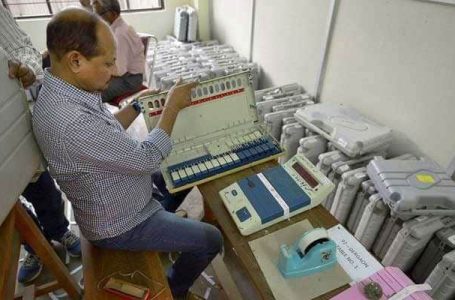August 3, 2018
New York: Using a 3D printer, researchers from University of California Los Angeles (UCLA) have developed an Artificial Intelligence (AI)-based device that can analyse large volumes of data and identify objects very fast – at the “actual speed of light”.
To develop the device, the researchers created a physical artificial neural network modelled on how the human brain works.
The researchers believe that new technologies based on the device could be used to speed up data-intensive tasks that involve sorting and identifying objects.
For example, a driverless car using the technology could react instantaneously — even faster than it does using current technology — to a stop sign.
With a device based on the UCLA system, the car would “read” the sign as soon as the light from the sign hits it, as opposed to having to “wait” for the car’s camera to image the object and then use its computers to figure out what the object is.
Technology based on the invention could also be used in microscopic imaging and medicine, for example, to sort through millions of cells for signs of disease, suggests the study published online in the journal Science.
“This work opens up fundamentally new opportunities to use an Artificial Intelligence-based passive device to instantaneously analyse data, images and classify objects,” said Professor Aydogan Ozcan, the study’s principal investigator.
Numerous devices in everyday life today use computerised cameras to identify objects — think of automated teller machines that can “read” handwritten dollar amounts when you deposit a check, or Internet search engines that can quickly match photos to other similar images in their databases.
But those systems rely on a piece of equipment to image the object, first by “seeing” it with a camera or optical sensor, then processing what it sees into data, and finally using computing programmes to figure out what it is.
The UCLA-developed device gets a head start. It uses the light bouncing from the object itself to identify that object in as little time as it would take for a computer to simply “see” the object.
Its “optical network” identifies an object because the light coming from the object is mostly diffracted toward a single pixel that is assigned to that type of object.
The researchers then trained the network using a computer to identify the objects in front of it by learning the pattern of diffracted light each object produces as the light from that object passes through the device.
The “training” used a branch of AI called deep learning, in which machines “learn” through repetition and over time as patterns emerge.
“This optical artificial neural network device is intuitively modelled on how the brain processes information. It could be scaled up to enable new camera designs and unique optical components that work passively in medical technologies, robotics, security or any application where image and video data are essential,” Ozcan said.
(IANS)



















